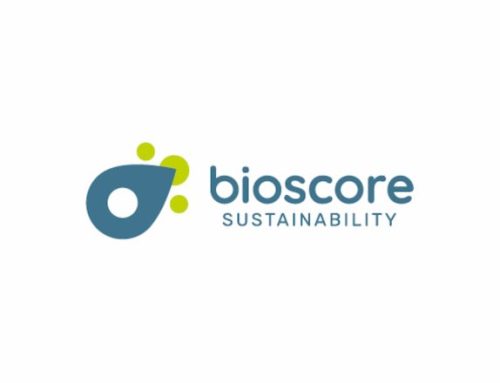The GSTC has become a Signatory of the Global Tourism Plastics Initiative
The Global Tourism Plastics Initiative (GTPI) unites the tourism sector behind a common vision to address the root causes of plastic pollution. It enables businesses and governments to take concerted action, leading by example in the shift towards circularity in the use of plastics.
As a signatory of the Global Tourism Plastics Initiative, GSTC commits to eliminate, innovate and circulate its use of plastics. GSTC will be advising and guiding affiliated organizations, businesses, and partners to better manage plastics in their operations through a focus on adherence to the GSTC Criteria (or other GSTC-Recognized Standards). This will include a reference to plastic-related issues and promotion of establishing sustainable certification which pursue plastic reduction policies as part of a holistic take on sustainability.
The GSTC Criteria references to plastic pollution reduction
The Global Sustainable Tourism Council (GSTC) establishes and manages the GSTC Criteria. There are two sets: The Destination Criteria and The Industry Criteria.
GSTC Industry Criteria: D1.1 Environmentally preferable purchasing
Purchasing policies favour environmentally sustainable suppliers and products, including capital goods, food, beverages, building materials and consumables.
Indicators:
a. A documented environmental purchasing policy is in place.
b. Preference is given to products and suppliers with environmental certification – notably with respect to wood, paper, fish, other foods, and products from the wild.
c. Where certified products are not available, consideration is given to origin and methods of growing or production.
d. Threatened species are not used or sold.
e. Service providers and other operators selected and featured in tours have environmental/sustainability certification where possible.
f. Where certified businesses are not available, the sustainability performance of service providers is considered and required improvements are communicated and implemented.
GSTC Industry Criteria: D1.2 Efficient purchasing
The organization carefully manages the purchasing of consumables and disposable goods, including food, in order to minimize waste.
Indicators:
a. Purchasing favours reusable, returnable and recycled goods.
b. Purchasing and use of consumable and disposable goods are monitored and managed.
c. Unnecessary packaging (especially from plastic) is avoided, with buying in bulk as appropriate.
GSTC Industry Criteria: D2.4 Solid waste
Waste, including food waste, is measured, mechanisms are in place to reduce waste and, where reduction is not feasible, to reuse or recycle it. Any residual waste disposal has no adverse effect on the local population or the environment.
Indicators:
a. The organization is aware of waste management arrangements in the main destinations visited, and seeks to influence their improvement where necessary and practicable.
b. A solid waste management plan is in place for the organization’s operations and those over which it has direct influence/control.
c. The solid waste management plan includes actions to reduce, separate and reuse or recycle food waste where applicable.
d. Waste disposal is to a government-run or approved facility and there is evidence that the facility has no negative impact on the environment or local population.
e. Solid waste disposed of is measured by type and goals are in place to minimize non-diverted solid waste.
f. Guidance is given to customers, staff and suppliers of products and services on minimizing waste.
GSTC Industry Criteria: D2.6 Minimize pollution
The organization implements practices to minimize pollution from noise, light, runoff, erosion, ozone-depleting substances, and air, water and soil contaminants.
Indicators:
a. The potential sources of pollution covered in the criterion have been reviewed and identified.
b. The potential sources of pollution covered in the criterion are monitored.
c. Action is taken to minimize and where possible eliminate pollution from the sources covered in the criterion.
GSTC Destination Criteria: D(c) Management of waste and emissions: D9 Solid waste
The destination measures and reports on its generation of waste and sets targets for its reduction. It ensures solid waste is properly treated and diverted from landfill, with the provision of a multiple-stream collection and recycling system which effectively separates waste by type. The destination encourages enterprises to avoid, reduce, reuse, and recycle solid waste, including food waste. Action is taken to eliminate or reduce single-use items, especially plastics. Any residual solid waste that is not reused or recycled is disposed of safely and sustainably.
Indicators:
a. Waste monitoring programme, with results and targets published.
b. Coordinated campaign/advice/support with tourism enterprises on waste management, including food waste.
c. Campaign to reduce/eliminate single-use items, especially plastics.
d. Waste management programme for public offices and facilities.
e. Provision of a collection and recycling system, with at least four streams (i.e. organic, paper, metal, glass and plastic).
f. Provision of a sustainable system for the disposal of residual waste.
g. Campaign to eliminate dropping of litter, including by visitors, and to keep public spaces clean.
h. Adequate bins for separated waste disposal.
About the Global Tourism Plastics Initiative

The Global Tourism Plastics Initiative aims to stop plastic ending up as pollution while also reducing the amount of new plastic that needs to be produced. To realise this vision, tourism companies destinations commit to eliminating the plastic items they don’t need; innovate so all plastics they do need are designed to be safely reused, recycled, or composted; and circulate everything they use to keep it in the economy and out of the environment.
The Global Tourism Plastics Initiative requires tourism organisations to make a set of concrete and actionable commitments by 2025:
- Eliminate problematic or unnecessary plastic packaging and items by 2025
- Take action to move from single-use to reuse models or reusable alternatives by 2025
- Engage the value chain to move towards 100% of plastic packaging to be reusable, recyclable, or compostable
- Take action to increase the amount of recycled content across all plastic packaging and items used
- Commit to collaborate and invest to increase the recycling and composting rates for plastics
- Report publicly and annually on progress made towards these targets
By transitioning to circularity in the use of plastics, the tourism sector can make positive contributions like reducing landfill, pollution, natural resource depletion and greenhouse gas emissions; raising awareness of conservation among staff and guests to avoid single-use plastic products; influencing their suppliers to produce more sustainable alternatives to single-use plastic products; working with governments to improve local waste infrastructure and community facilities, and creating sustainable livelihoods and long-term community prosperity in harmony with nature.
By taking serious action in a coordinated and determined manner on plastic pollution, the tourism sector can help preserve and protect the places and wildlife that make destinations worth visiting.




